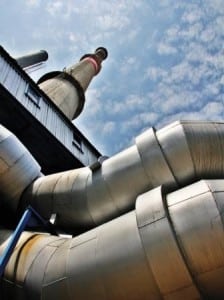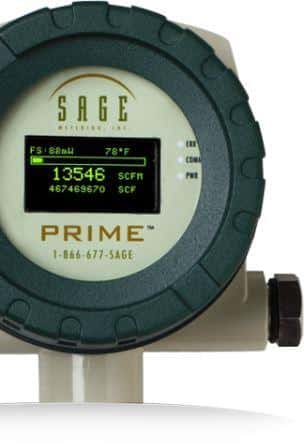Thermal mass flow meters are used in a variety of applications within the pulp and paper industry including: combustion control, compressed air monitoring and greenhouse gas emissions reporting.

Combustion Control
A significant way to reduce energy consumption in the pulp and paper manufacturing environment is to optimize the combustion control on industrial boilers. Combustion efficiency and energy management is achieved through accurate and repeatable measurement of gases.
By monitoring the air and fuel rates to burners, optimal air-to-fuel ratios are achieved, resulting in significant reductions in fuel gas cost, improved process efficiency, enhanced product quality, better yields, while simultaneously lowering combustibles. Many local and state-wide jurisdictions have environmental regulations requiring flow meters on all medium and large heating units to measure plant wide emissions. Thermal mass flow meters are ideally suited for measuring both natural gas flow and combustion air flow in combustion processes.
Compressed Air
When measuring compressed air, corrective measures can be taken to adjust for excessive air consumption and significantly save in energy consumption.
Greenhouse Gas Emissions
Facilities emitting 25,000 metric tons of CO2e annually are required by the EPA to report annual emissions per EPA mandate 40 CFR Part 98. Thermal mass flow meters offer a reliable solution to measure, monitor and control gas mass flow for various environmental applications.
Thermal Mass Meters
The Sage Prime is ideal for many applications within the pulp and paper processes. More information can be found in Sage Metering white papers:
- Combustion Efficiency and Thermal Mass Flow Meters
- Greenhouse Gas Emissions Monitoring Using Thermal Mass Flow Meters

